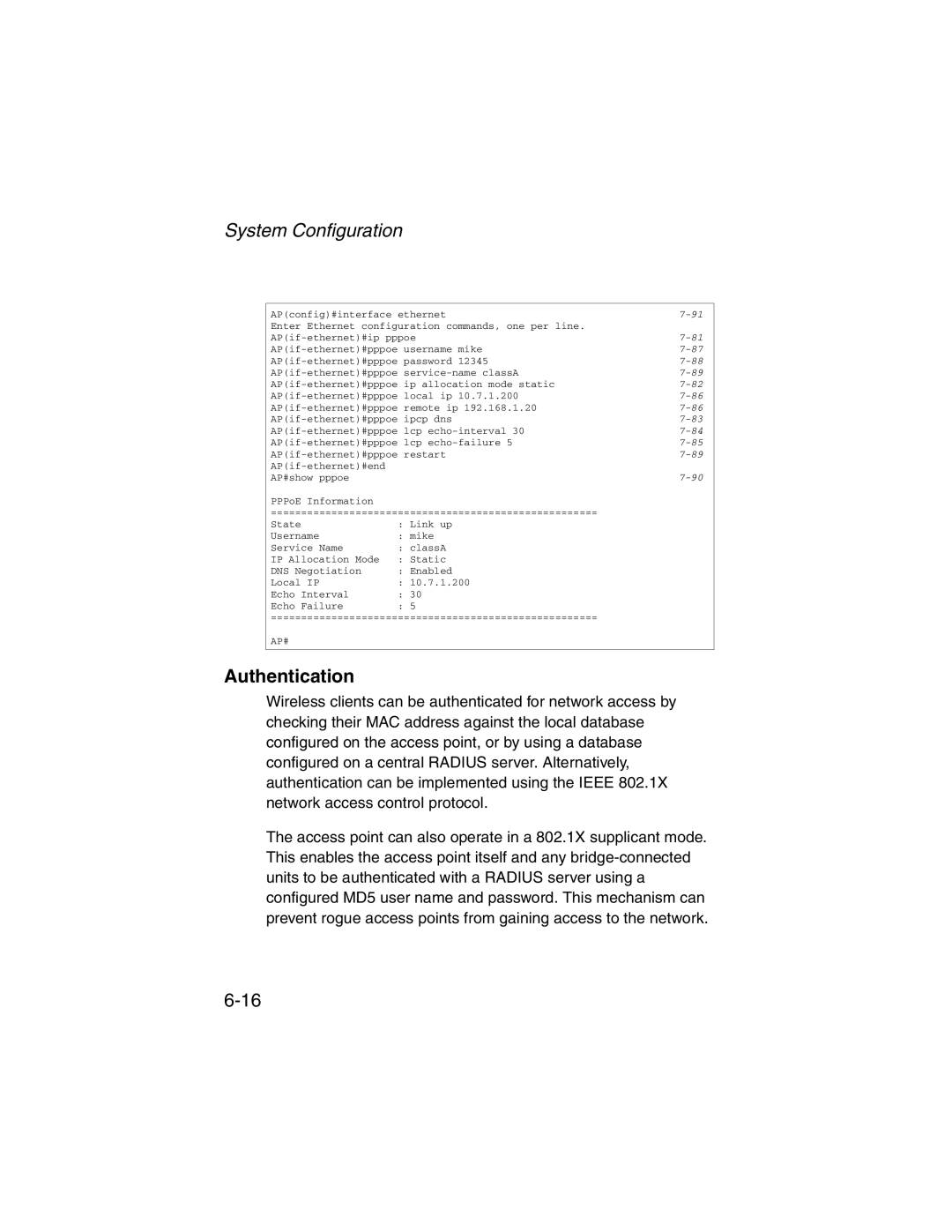
System Configuration
AP(config)#interface | ethernet | |
Enter Ethernet configuration commands, one per line. |
| |
|
| |
AP#show pppoe |
| |
PPPoE Information |
|
|
====================================================== |
| |
State | : Link up |
|
Username | : mike |
|
Service Name | : classA |
|
IP Allocation Mode | : Static |
|
DNS Negotiation | : Enabled |
|
Local IP | : 10.7.1.200 |
|
Echo Interval | : 30 |
|
Echo Failure | : 5 |
|
======================================================
AP#
Authentication
Wireless clients can be authenticated for network access by checking their MAC address against the local database configured on the access point, or by using a database configured on a central RADIUS server. Alternatively, authentication can be implemented using the IEEE 802.1X network access control protocol.
The access point can also operate in a 802.1X supplicant mode. This enables the access point itself and any
